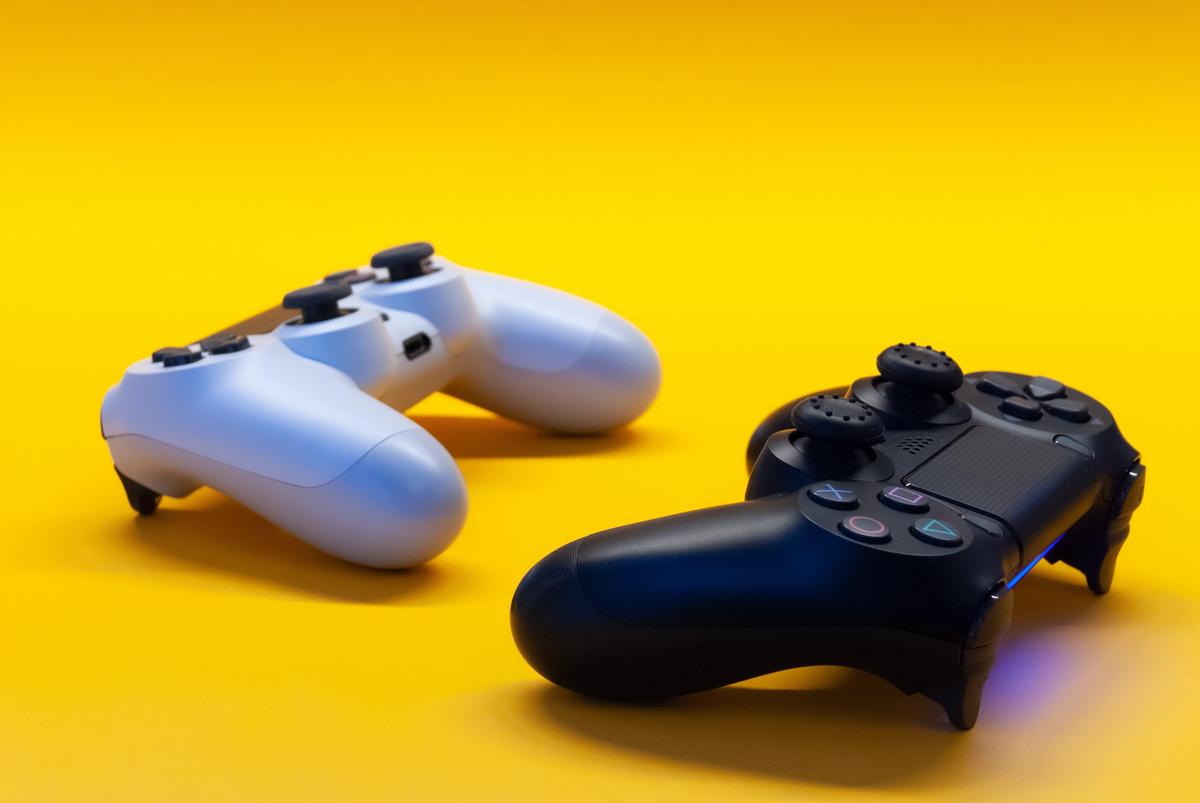In our contemporary digital age, electronic sports, better known as eSports, are continually creating waves in the realm of entertainment, leading to dialogue and analysis on their impact on our lives. This growing phenomenon doesn’t merely encapsulate an expansive variety of games and immense competition infrastructures, it has inevitably spilled into the arena of health – both physical and mental. The rise of eSports ushers a unique blend of physical challenges common to sedentary lifestyles, and psychological aspects driven by such a high-stakes, high-pressure environment. Actively acknowledging and addressing these is essential as it helps pave a safer, healthier path for the enthusiastic millions that adore this world.
Understanding eSports and Its Popularity
The Dawn of Competitive Gaming
Picture a typical, bustling Saturday in South Korea. Throngs of people juke shoulder to shoulder in the heart of Seoul. But many of these individuals aren’t there for shopping or sightseeing; they are there for a unique cultural phenomenon – eSports.
eSports, or Electronic Sports, refer to competitive, organized video gaming. Do you remember the neighborhood Super Mario Kart races where you were trying to throw green shells at each other? That was a primordial version of eSports. It’s not just about battling friends in your living room; eSports have exploded onto world stage, complete with professional competitors, millions of fans and colossal tournaments with hefty prizes.
Understanding the Scale of eSports Popularity
In the crowded streets of Seoul, neon signage of various esports teams’ logos glow, their players elevated to the status of revered celebrities. Gaming isn’t merely a past-time here; it’s a lucrative profession, and it has gripped the nation’s youth with fevered intensity.
Indeed, this isn’t a phenomenon restricted to South Korea. eSports has piqued interest globally, with millions of fans tuning in to live streams to watch their favorite players. The numbers are stunning. The 2019 League of Legends World Championship boasted a staggering 100 million unique viewers. That’s more than the Super Bowl.
Gazing into the Genres of eSports
Games in eSports span across countless genres. From the strategic battles on Summons Rift in League of Legends to the fast-paced first-person shooter games like Counter-Strike: Global Offensive, the array of games caters to the varied tastes of audiences worldwide.
Sector-based real-time strategy games like StarCraft have had a long-standing popularity, especially in South Korea, while multiplayer online battle arena (MOBA) games such as Dota 2 have a thriving fan base in the Western world.
The Demanding Life of a Professional eSports Athlete
The world of professional eSports, while glamourous and patently lucrative, is not one to be treated lightly. It necessitates vigorous training, advanced strategizing, and razor-sharp reflexes. Following an analogy with traditional sports, eSports are not aloof from the necessity of physical conditioning.
Despite common misconceptions, investing all waking hours before a computer screen does not guarantee victory. Top-tier competitors usually follow a meticulously planned regimen to uphold their physical health. Regular intervals for relaxation, stretches to resist the development of Carpal Tunnel Syndrome, and a well-rounded diet for peak cerebral performance are all key aspects of their routine. Notably, these dedicated eSports teams even recruit trainers to assist players in staying fit and healthy.
The dynamic nature of the eSports industry insists on a continuous progression in the approaches to player health management. Those who have ascended to the summit of this profession have mastered the art of balancing the callings of their trade, with increased attention to their physical wellbeing. As the eSports industry continues to swell into a formidable force, the discourse surrounding players’ mental and physical health is gaining prominence, challenging conventional narratives about modern sports.

The Physical Health Issues Associated with eSports
eSports: A Double-Edged Blade of Progress
In an era where computer monitors, clicking keyboards, and joystick commands have taken primacy, eSports has emerged as a revolutionary worldwide trend. Embarking a fresh era of athleticism, where contenders skirmish in virtual domains instead of physical arenas, the eSport stage is filled with aspiring and dedicated individuals, consciously absorbed in their chosen practice, with little physical movement required.
However, similar to all types of paradigm shifts, eSports introduces its unique set of hurdles and ramifications, particularly pertaining to physical health. The appeal of eSports often masks sinister health issues associated with sedentary lifestyles, which are linked to repeated stress injuries and the relentless threat of eye strain.
Caught in The Slow Dance With Sedentarism
Voyaging through the fervor of eSports often means being anchored to a seat for prolonged hours. A life essentially tethered to a chair, bathed in the fluorescent glow of monitor light, it cultivates a sedentary existence that reeks of inactivity. But what harm could result from sustained seating, one might wonder? Unfortunately, plenty.
Inactivity, backed by an endless buffet of junk food, makes for a perfect breeding ground for obesity, cardiovascular diseases, and diabetes. The lack of motion, the hushed whisper of stagnant being, rob the body of its vitality, propelling it into a downward spiral of lifestyle diseases.
Take the case of a popular eSports player. A creature of the night that thrived on energy drinks and quick fixes for sustenance, he found himself in the claws of healthcare issues prematurely. The reality of his physical deterioration was a wake-up call to the hazards of the eSports way of life.
Joystick Jousting and the Repetitive Stress Injuries
However, the physical tribulations do not end with sedentarism. The pulsating rhythm of fingers across keyboards, the ceaseless dance of thumbs on joysticks, make for a repetitive performance that is as harmful as it is mesmerizing. It brings forth repetitive stress injuries, a silent terror in the world of eSports.
Quoted as the professional hazard of the eSports industry, repetitive stress injuries affect the muscles, nerves, ligaments, and tendons, igniting a jarring pain that is hard to ignore. One famous eSport player hailing from America had to retire at the tender age of 22, simply because his repetitive stress injury got the better of his passion for gaming.
Understanding Vision and Eye Strain in eSports
Intense concentration and long hours glued to screens are a common aspect of the eSports scene. This uninterrupted screen time, focused mainly on the monitor, has the potential to lead to digital eye strain. It’s not uncommon for it to impair player’s vision over time. Symptoms are usually expressed through lowered visual clarity, dryness, or watering of the eyes, all direct consequences of the modern eSports lifestyle.
Scientific studies have begun to expose the potential risks associated with these practices, prompting eSports organizations to advocate for healthier lifestyle choices. Regular exercise, proper rest, and scheduled eye breaks are now part and parcel of a player’s routine. However, striking the right balance is still a challenge. As eSports continues to captivate audiences globally, it simultaneously straddles the line between exultant enthusiasm and physical strain.

Photo by jakehills on Unsplash
The Mental Health Aspect of eSports
The Unseen Battlefield
As audience members, we are captivated by their lightning-quick reflexes, precise shots, and remarkable mental reflexes. However, behind these glowing screens of the adrenaline-filled eSports events, players face an entirely different, less visible struggle. This battle, waged incessantly within the confines of digital battlefields, is not against human opponents, but inner demons such as stress, anxiety, addiction, depression, and social isolation. Here, our celebrated eSports champions are not battling visible, physical injuries. Instead, they are facing, and doing battle with, the hidden yet equally damaging effects of deteriorating mental health.
The Hidden Perks of eSports
The world of eSports offers a mesmerizing cocktail of fame, fortune, and fan-following. The adrenaline-pumping thrill of being engaged in a high-stakes battle against formidable opponents from across the globe is intoxicating, to say the least. Players are seduced by the cerebral interplay of strategy, skill, and speed. The anticipation of victory and the fear of defeat are potent stimulants – ceaselessly driving gamers to push their boundaries and test their limits.
The Double-Edged Sword
However, this seemingly exhilarating gaming universe conceals a silent epidemic ravaging its inhabitants—the mounting mental health crisis. Much like professional athletes in traditional sports, eSports athletes are subjected to immense pressure, both internally generated and externally imposed. The rigorous training routine, grueling practice sessions, exceedingly high expectations, fierce competition, and the continuous pursuit of perfection can wear down the strongest minds. This incessant grinding can spur chronic stress, giving birth to anxiety and depression.
When Addiction Creeps In
Equally troubling is the potential for video game addiction. As harmless as that term might sound to the uninitiated, it is indeed a classified disease by the World Health Organization. eSports, with its captivating graphics, immersive storylines, and real-time multiplayer interface, presents fertile ground for this addiction to bloom.
The compulsion to perpetually better oneself can tether gamers to their screens for unhealthy lengths of time, impairing their social abilities, affecting sleep patterns, and leaving them in a state of perpetual mental exhaustion. Hours, then days, blur into one another as the gamers plummet deeper into the vicious cycle of addiction, often despairingly oblivious to the eroding state of their mental wellbeing.
Hermit in the Hustle
The sedentary and solitary nature of gaming also lends itself to social isolation. Despite the presence of a vast, interconnected global eSports community, the reality for most players is hours spent alone, cloistered away from the world. This lack of real, face-to-face human interaction and the consequent absence of emotional and social support can exacerbate feelings of loneliness, ultimately spiraling into depreciated mental health.
Scientific Examinations and Discussions
These are not just anecdotal inferences. Various scientific studies have started to throw light on the mental health implications of prolonged gaming. These studies reveal disconcerting trends of heightened stress and anxiety levels, sleep disorders, addiction patterns, and even cases of severe depression among professional gamers. This incipient recognition of the mental health perils lurking in the eSports world underscores the urgent need for a comprehensive strategy to safeguard our digital fighters.
The Battle Beyond the Screen
Irrespective of empirical proof, it stands to reason that if we truly value the longevity and reputation of eSports, we must give mental health the same level of consideration as physical health. Opening up discussions about mental health issues, advocating for routine mental exams, and crafting detailed healing protocols should be vital components of the global professional eSports infrastructure. Our cyber athletes are worthy of nothing less.

Proactive Measures and Health Tips for eSports Enthusiasts
Creating a Balance between Mind and Body
Imagine the electrifying world of eSports filled with radiant screens, shimmering graphics, and players immersed in their virtual battlefield. Physical strength may seem trivial here as digital dominance hinges on mental agility. However, the irony lies in excelling at this game; it demands a harmonious balance between mind and body.
To those who remain uncertain, visualize sitting amidst an intense Overwatch tournament. As your fingers swiftly navigate the keys and your mind connects with the game, your heartbeat accelerates, fueled by surging adrenaline. This amplified scenario could potentially disrupt the delicate equilibrium between mind and body that one needs to nurture.
This poses an interesting question, how can eSports enthusiasts reach and maintain peak physical and mental health to continue engaging in their beloved hobby?
Regular Physical Exercise: the Unsung Hero
The unfamiliar may brush off the significance of regular physical exercise for the typical eSports enthusiast. After all, maneuvering through the battlegrounds of World of Warcraft or systematically breaking down the enemy’s Nexus in League of Legends doesn’t require physical strength. Or does it?
Beyond building a physically fit body, exercise helps build mental acuity, an attribute of crucial importance in the gaming world. Picture a Saturday morning, with golden rays of sun caressing the earth. Muscles ache from yesterday’s workout but you persevere, knowing that the physical toll is contributing to your gaming endeavors. Sweats drip, heartbeats pound rhythmically, and a sense of accomplishment wraps you up as you complete your regime. An invigorating workout not only enhances reflexes and sharpens coordination but also has the astonishing ability to wade off mental lassitude.
Balanced Diet: More than Just a Healthy Fad
Imagine you are at a neighborhood grocery store. You make your way through aisles of colorful fruits, rainbow arrays of vegetables, and lovely loaves of whole grain bread. Many eSports players overlook this as unimportant and tend to fall into the junk food trap, but a good diet enhances performance potential and maintains robust health.
Brain-foods like nuts, blueberries, and fish are powerful agents that boost mental agility, enhance memory, and decrease fatigue, essential attributes in the gaming arena. Decluttering your diet from processed and fast-foods ensures you stay energized and fit, providing the nourishment needed to withstand long gaming sessions.
Incorporating Breaks: The Power of Respite
Picture yourself in the midst of an intense gaming spree. Your heart is pounding, palms sweating, and your focus unwavering. Yet a break, taken at the right time can become a potent ally. A pause, a brief moment away from the screen, a chance to stand, stretch, and most importantly, rest your eyes and mind.
These intermissions are often overlooked but play a significant role in maintaining mental and physical health. This is not merely an escape from the pulsating electronic world but rather, a productive interval. A break rejuvenates the mind, enhances focus, prevents burnout, and allows time for personal reflection and body relax.
Professional Help for Mental Health: A Necessary Consideration
Imagine yourself consulting a therapist. You’re both sitting in a softly lit room, the therapist listening intently, ready to help. Sounds intimidating, eerie perhaps? But mental health, often a stigmatized aspect of one’s welfare, becomes a vital focus point in eSports.
The stress, the high stakes, and the relentless drive to succeed can lead to a burgeoning pressure on mental well-being. Game over doesn’t mean life’s over. Professional assistance aids in maintaining emotions, regulating stress, dealing with pressures associated with gaming, and above all, helps maintain a balance with real-life responsibilities.
eSports, more than just a game
eSports, more than just a game, calls for a comprehensive and balanced lifestyle that includes physical exercise, a balanced diet, timely breaks, and professional guidance to navigate mental hurdles. Not so different from any demanding endeavor, the key is finding and maintaining that harmony within and without. Be part of a healthy gaming culture and embrace a lifestyle where you are at your best, both in the virtual and the real world.

Photo by ingvar_erik on Unsplash
While it’s indisputable that eSports provoke a plethora of health issues stemming from habitual long gaming sessions and the intense competitiveness they draw, we must not overlook the multitude of steps and preventative measures gamers can take to safeguard their health. Simple endeavors such as incorporating regular exercise, maintaining a balanced diet, integrating breaks during gaming, and seeking professional guidance for mental health issues can be hugely beneficial. As we move forward, it is these continual reminders and conscious efforts that bring about a healthier, harmonious synergy between eSports and body health, promising a sustainable future for the vibrant culture of eSports.
